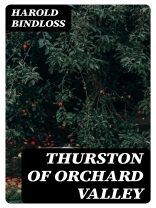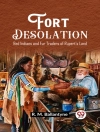In ‘Thurston of Orchard Valley, ‘ Harold Bindloss crafts a compelling narrative that intertwines themes of ambition, redemption, and the rugged spirit of the Canadian frontier. Set against the backdrop of rural Ontario, the novel focuses on the struggles and triumphs of its protagonist, Thurston, as he navigates the complexities of life as a farmer and an individual seeking both financial success and personal fulfillment. Bindloss employs a vivid, descriptive style that captures the essence of the landscape and the emotional depth of its characters, creating a rich literary tapestry that reflects the early 20th-century migration and settlement narratives in Canada. Harold Bindloss, known for his deep understanding of the Canadian landscape and its socio-economic challenges, draws from his own experiences as a settler and writer. His background, infused with a keen observation of nature and the human condition, profoundly shapes his storytelling. Bindloss’s affinity for rural life and his desire to depict the trials of the Canadian populace serve as catalysts for the thematic developments in ‘Thurston of Orchard Valley, ‘ revealing his commitment to portraying the realities of life on the frontier. This novel is a remarkable exploration of resilience and the pursuit of dreams amidst adversity, making it a must-read for anyone interested in early Canadian literature or the intricate stories of individuals who dare to carve out a life in the wild. Readers will find Bindloss’s work resonant and enlightening, offering an authentic glimpse into a pivotal time in Canadian history.
Circa l’autore
Harold Bindloss (1866-1945) was a prolific English novelist and writer, whose narrative craft was often interwoven with the rugged landscapes of the British colonies and the vibrant frontier life. The essence of his literary style lies in the vivid depiction of outdoor adventure and pioneering spirit, which resonated well with the readers of the early 20th century. Bindloss left England for Canada in the 1890s, which greatly influenced his writing, as seen in his works like ‘Thurston of Orchard Valley’ — a tale that captures the essence of rural community and individual determination. His books frequently explored themes of integrity, perseverance, and the human struggle against natural elements, often featuring stoic heroes facing moral dilemmas. Bindloss wrote over thirty novels, each rich with the authenticity of an author who not only wrote about the frontier but lived it. His works, now somewhat faded from popular memory, offered an important contribution to the genre of adventure and pastoral novels of his time, vital for understanding the spirit of the age in which they were written.












